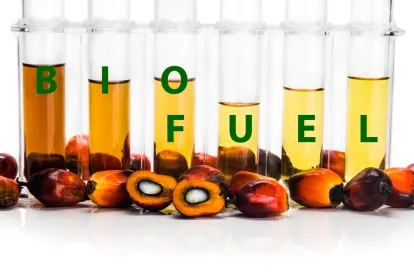On September 20, 2017, U.S. Secretary of Energy Rick Perry announced that DOE selected eight projects related to the optimization of integrated biorefineries (IBR) to negotiate for up to $15 million in DOE funding. The projects aim to solve critical research and developmental challenges encountered for the successful scale-up and reliable operations of IBRs, to decrease capital and operating expenses, and to focus on the manufacture of advanced or cellulosic biofuels and higher-value bioproducts.
The eight projects focus on one or more of the following topic areas:
-
Robust, continuous handling of solid materials (dry and wet feedstocks, biosolids, and/or residual solids remaining in the process) and feeding systems to reactors under various operating conditions;
-
High-value products from waste and/or other undervalued streams in an integrated biorefinery;
-
Industrial separations within an integrated biorefinery (no projects have been selected from this topic area); and
-
Analytical modeling of solid materials (dry and wet feedstocks and/or residual solids remaining in the process) and reactor feeding systems.
The project winners include:
-
Thermochemical Recovery International Inc., which will study and improve feedstock and residual solids handling systems targeted to commercial pyrolysis and gasification reactors;
-
Texas A&M Agrilife Research, which will work on achieving a multi-stream integrated biorefinery (MIBR), where lignin-containing IBR waste will be fractionated to produce lipid for biodiesel, asphalt binder modifier, and quality carbon fiber;
-
White Dog Labs, which will use the residual cellulosic sugars in cellulosic stillage syrup to produce single-cell protein (SCP) for aquaculture feed;
-
South Dakota School of Mines, which will demonstrate the cost-effective production of biocarbon, carbon nanofibers, polylactic acid, and phenol from the waste streams generated from the biochemical platform technology;
-
National Renewable Energy Laboratory, which will leverage and extend state-of-the-art modeling and simulation tools to develop integrated simulations for feed handling and reactor feeding systems;
-
Clemson University, which will develop analytical tools to identify an optimal IBR process design for the reliable, cost-effective, sustainable, and continuous feeding of biomass feedstocks into a reactor;
-
Purdue University, which aims to develop strong, innovative computational and empirical models that rigorously detail the multiphase flow of biomass materials; and
-
Forest Concepts, which proposes to develop robust feedstock handling modeling and simulation tools based on systematic analysis.
According to Secretary Perry, “[t]hese projects have the potential to increase the efficiency of producing biofuels and bioproducts, enabling the United States to better utilize its abundant biomass resources, boost economic development, and advance U.S. competitiveness in the global energy market.” The funding opportunity is supported jointly by DOE’s Bioenergy Technologies Office (BETO) and the U.S. Department of Agriculture’s (USDA) National Institute of Food and Agriculture (NIFA).


 />i
/>i


